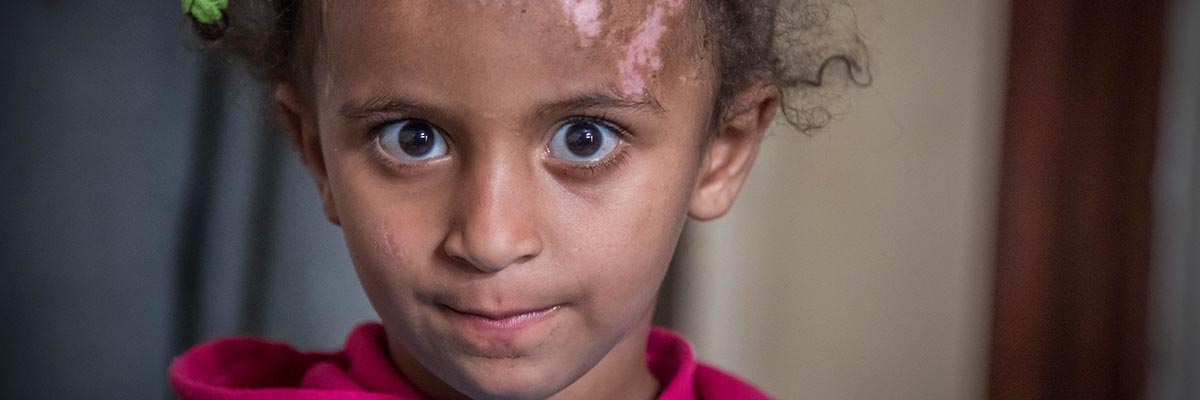Who are the people being affected?
More than 11 million children are in need of urgent help. Here are just 3 of these children's stories.
Suzan*
Fayez* and his family come from Yemen, which has been locked in civil war since 2015.
Fayez has a wife, four daughters and a son – another son was killed in an air strike.
One day, Fayez and his daughter Suzan hitched a ride on a motorbike to market. A military vehicle crashed into the motorbike – killing its driver, injuring Fayez and sending a piece of metal straight into Suzan’s skull.

A taxi driver rushed the two of them to hospital, where they were given urgent medical treatment.
Suzan’s head wound was cleaned and stitched up, but the damage to her brain had already been done. She now has terrible nightmares and little understanding of the world around her. Her left arm is also injured.
“She screams at night when she’s asleep. Even at night when you are sleeping, she wakes up in panic about 20 times, saying “I’m dying I’m dying… the motorbike fell over”. We tell her there is no motor, she says “no, there is, and the car behind is going to hit us”.
Fearing more deaths, the family fled their home with nothing and made their way to the capital city of Sana’a – narrowly avoiding bombing and road blocks en route.